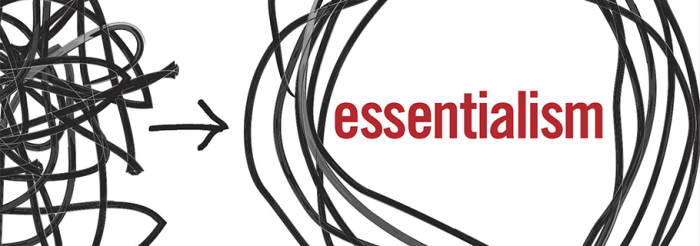
In chapter three of Essentialism: The Disciplined Pursuit of Less, author Greg McKeown poses an important and interesting question:
“We have been taught from a young age that hard work is key to producing results, and many of us have been amply rewarded for our productivity and our ability to muscle through every task or challenge the world throws at us. Yet, for capable people who are already working hard, are there limits to the value of hard work? Is there a point at which doing more does not produce more? Is there a point at which doing less (but thinking more) will actually produce better outcomes?”
McKeown goes on to describe his experience as a young boy in London getting his first job—delivering papers. He put in one hour of work each morning and earned one pound a day. But after awhile, he discovered he could wash his neighbors’ cars for two pounds each, and do three in an hour. “Suddenly, the ratio of hours to pounds changed from 1:1 to 1:6. I had just learned a crucial lesson: certain types of effort yield higher rewards than others.”
As he got older, McKeown continued to recognize the important relationship between time invested and results achieved. Soon he learned that “Working hard is important. But more effort does not necessarily yield more results. ‘Less but better’ does.”
This is true in virtually all areas of life. I’m sure you’ve heard the similar phrases “less is more,” and “quality over quantity.” They are clichés because they’ve been overused, but they’ve been overused because they have some measure of truth in them.
Focusing on “less but better” will almost always yield better results and higher rewards than more and more effort and activity.
How about you—have you been caught in the trap of thinking you have to do more and more and try harder and harder in order to achieve greater results? What can you change—personally, professionally, or organizationally—to pursue “less but better?”
This is a question that calls for serious thought and consideration, and immediate application! Don’t continue to waste your precious time and energy investing in “more and more” when the key may very well be found in “less but better.”

